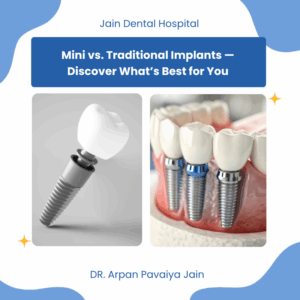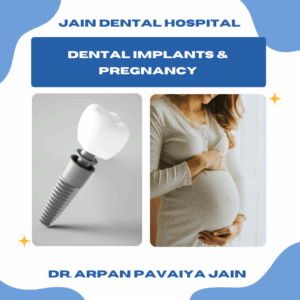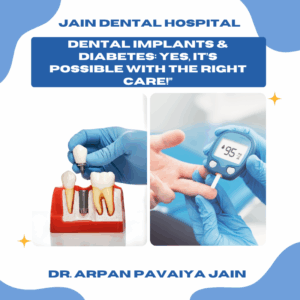Are Dental Implants Painful? A Comprehensive Guide to What to Expect
Are dental implants painful, or is it just a common myth that holds people back from restoring their smile?
Dental implants are a game-changer for anyone looking to replace missing teeth with a permanent, natural-looking solution. They offer unmatched durability and functionality, restoring your smile and confidence. But one question looms large for many considering this treatment: How painful are dental implants?
If you’re hesitant due to fear of pain or have had negative dental experiences in the past, you’re not alone. This guide breaks down the dental implant process, pain levels at each stage, and expert tips to ensure a comfortable experience. Let’s set realistic expectations and ease your concerns about dental implant pain.
Understanding the Dental Implant Procedure
To understand do dental implants hurt, it helps to know what the procedure entails. Dental implants replace both the root and crown of a missing tooth, making them a robust alternative to dentures or bridges. The process typically unfolds in three stages:
- Evaluation and Planning: Your dentist assesses your oral health, jawbone density, and treatment needs. This may involve X-rays or 3D scans to plan the implant placement.
- Surgical Implant Placement: A titanium post is surgically inserted into your jawbone to act as an artificial tooth root. This step is done under anesthesia.
- Healing and Osseointegration: Over 3–6 months, the implant fuses with your jawbone in a process called osseointegration. This ensures stability for the final restoration.
- Crown or Prosthesis Placement: Once healed, an abutment and custom crown are attached to the implant, completing your new smile.
Each stage is carefully managed to minimize discomfort, but let’s dive into what you can expect regarding pain after dental implant surgery.
Is the Implant Surgery Painful?
The good news? You won’t feel dental implant pain during the surgery itself. Dentists use local anesthesia to completely numb the area, and some patients opt for sedation or general anesthesia for added comfort, especially if they have dental anxiety.
Most people describe the sensation as more of a gentle pressure or some mild vibrations — not actual pain. One patient even said, “It felt weird, but not painful. I was more nervous about it than I needed to be.”
Compared to other dental treatments, such as tooth extractions or root canals, implant surgery is often described as less uncomfortable. Why? The precision of modern techniques and anesthesia ensures a smooth experience. An experienced dentist, combined with proper sedation, makes the procedure virtually pain-free.
What to Expect After Surgery
Once the anesthesia wears off, you may experience dental implant recovery pain. Here’s what’s typical:
- Immediate Post-Op (1–3 Days): Mild soreness, swelling, or discomfort around the implant site, cheeks, or jaw. Some patients notice minor bruising or bleeding.
- 1 Week Post-Op: Pain typically peaks within 1–3 days and starts to subside. Most people manage discomfort with over-the-counter (OTC) medications like ibuprofen or acetaminophen.
- 2 Weeks Post-Op: By this point, pain should be minimal or gone, with swelling significantly reduced. The implant site begins to heal nicely.
For most, pain after dental implant surgery is manageable and less intense than expected. However, everyone’s pain tolerance varies, and certain factors can influence your experience (more on that later).
Pain Management Techniques
Managing dental implant discomfort is straightforward with the right approach. Here are proven strategies:
- Medications: Your dentist may prescribe painkillers or recommend OTC options like ibuprofen or acetaminophen to ease soreness. Always follow dosing instructions.
- Home Care:
- Apply ice packs to the outside of your face for 15–20 minutes at a time to reduce swelling.
- Stick to a soft diet (think soups, yogurt, or mashed potatoes) for the first 7–10 days to avoid irritating the implant site.
- Rest as much as possible, especially in the first 1–2 days.
- Oral Hygiene: Gently rinse with warm saltwater several times a day to keep the area clean and promote healing. Brush carefully around the implant site to avoid irritation.
- Warning Signs: Contact your dentist immediately if you experience:
- Persistent or worsening pain after 5–7 days
- Excessive bleeding beyond a few hours
- Fever, nausea, or vomiting
- Significant swelling that doesn’t improve
These steps help most patients keep discomfort to a minimum and recover smoothly.
Causes of Severe Pain after a Dental Implant Procedure
While mild discomfort is normal, severe pain after implant surgery could signal a complication. Here are common causes and what to do:
- Normal Pain Progression: As anesthesia fades, you may feel sharp discomfort or mild throbbing for a few hours. This typically resolves within 1–3 days with proper care.
- Incision Line Opening: The tissue around the implant may reopen, causing irritation or pain. Rinse with a chlorhexidine mouthwash as directed, or consult your dentist for antibiotics or further care.
- Improperly Fitted Implant: If the implant doesn’t integrate properly with the jawbone, it may cause persistent discomfort. This may require removal and reattachment by your oral surgeon.
- Infection: Bacteria in the surgical site can delay healing, leading to pain, swelling, or wound reopening. Antibiotics and professional care are essential to address this.
- Other Red Flags:
- Fever or chills
- Persistent swelling or bruising beyond 10 days
- Excessive bleeding
- Nausea or vomiting
If you notice any of these symptoms, don’t wait—contact your oral surgeon or dentist immediately. Early intervention can prevent complications and ensure your implant heals properly.
Factors That Influence Pain Levels
Not everyone experiences dental implant pain the same way. Several factors can affect your comfort level:
- Pain Tolerance and Anxiety: If you’re anxious about dental procedures, you may perceive pain more intensely. Discuss sedation options with your dentist to stay relaxed.
- Procedure Complexity: More complex cases, like those requiring bone grafting or multiple implants, may involve slightly more discomfort.
- Oral Health: Poor oral hygiene or pre-existing conditions like gum disease can slow healing and increase pain risk.
- Surgeon’s Expertise: A skilled, experienced dentist minimizes trauma to tissues, reducing post-op discomfort.
- Post-Operative Care: Following your dentist’s instructions—such as avoiding hard foods or smoking—greatly impacts your recovery and pain levels.
Choosing a qualified professional and adhering to their guidance can make a significant difference in your experience.
Comparing Implant Pain with Other Dental Treatments
How does dental implant pain stack up against other procedures? Here’s a quick comparison:
- Dental Implant vs. Tooth Extraction: Many patients report that implant surgery is less painful than having a tooth extracted. Extractions often involve more immediate discomfort due to tissue and nerve trauma.
- Dental Implant vs. Root Canal: Root canals can cause lingering sensitivity, whereas implant pain is typically shorter-lived and more predictable.
- Dental Implant vs. Dentures: Dentures may cause ongoing discomfort from poor fit or jawbone degradation, while implants provide a stable, long-term solution with temporary post-op pain.
For most, the discomfort of implants is well worth the lifelong benefits of a strong, natural-looking smile.
Tips for a More Comfortable Experience
Want to minimize dental implant recovery pain? Follow these expert tips:
- Choose an Experienced Dentist: A skilled oral surgeon with a track record of successful implants reduces the risk of complications and discomfort.
- Discuss Sedation Options: If you have dental anxiety, ask about nitrous oxide, oral sedation, or IV sedation to stay calm during the procedure.
- Follow Pre- and Post-Op Instructions: From avoiding certain foods to taking prescribed medications, sticking to your dentist’s advice ensures a smoother recovery.
- Prepare for Recovery: Stock up on soft foods, ice packs, and OTC pain relievers before your surgery to make the first few days easier.
- Communicate Concerns: Share any fears or past negative dental experiences with your dentist so they can tailor the process to your needs.
These steps empower you to take control of your implant journey and minimize discomfort.
Conclusion
Forget the Pain and Restore Your Smile with Dental Implants
So, how painful are dental implants? For most patients, the procedure itself is pain-free thanks to anesthesia, and post-operative discomfort is mild to moderate, lasting just a few days to a week. With proper pain management, expert care, and diligent aftercare, dental implant complications like throbbing pain or infections are rare. The result? A durable, natural-looking smile that’s worth the temporary discomfort.
If you experience persistent pain, swelling, or other concerning symptoms beyond 10 days, reach out to your dentist promptly. Early action can protect your investment in a healthier smile.
Take Action Today - Book a consultation with the top dental doctor in Indirapuram & Ghaziabad!
Thinking about dental implants but worried about the pain? Don’t let fear hold you back!. Book a personalized consultation with an expert today and discover a pain-managed, confident path to a new smile. Our experienced dental team is here to guide you every step of the way.
If you’re searching for the best dental clinic in Indirapuram Ghaziabad, look no further than Jain Dental Hospital.
Take the first step toward a brighter smile. Book your appointment today and experience the difference! Call us at +91-9582535204 or visit our website at www.jaindentistdelhi.com.

Dr. Arpan Pavaiya Jain, Director of Jain Dental Hospital, Indirapuram, Ghaziabad is a renowned Prosthodontist and Implantologist with over 20 years of expertise in advanced dentistry. A graduate of the prestigious King George’s Medical College Lucknow, he has performed more than 20,000 successful dental implant procedures. Dr. Jain leads a team of skilled professionals, offering state-of-the-art treatments in dental implants, clear aligners, cosmetic dentistry, orthodontics, and more. Known for his personalized care and commitment to excellence, he has earned a reputation as a trusted dental expert in Indirapuram, Ghaziabad.





